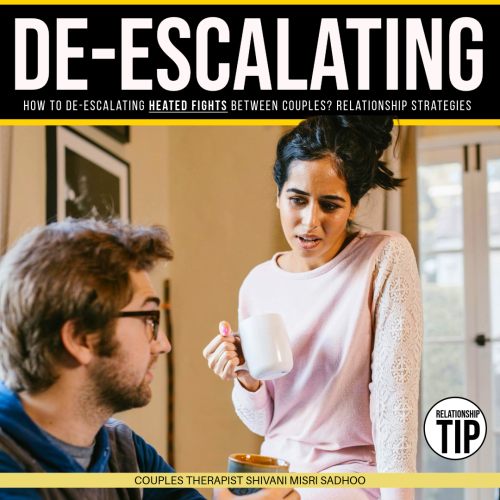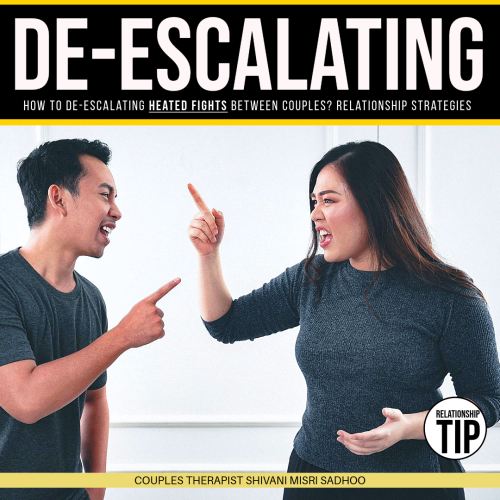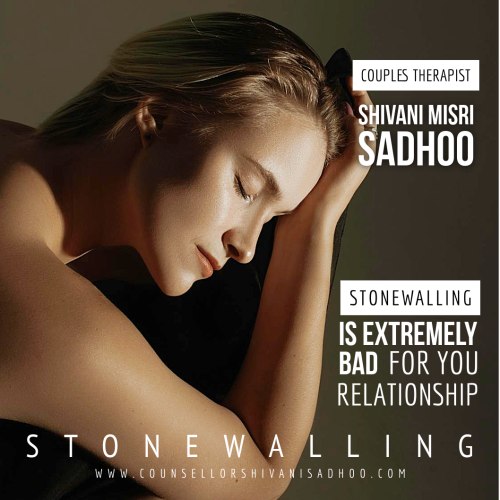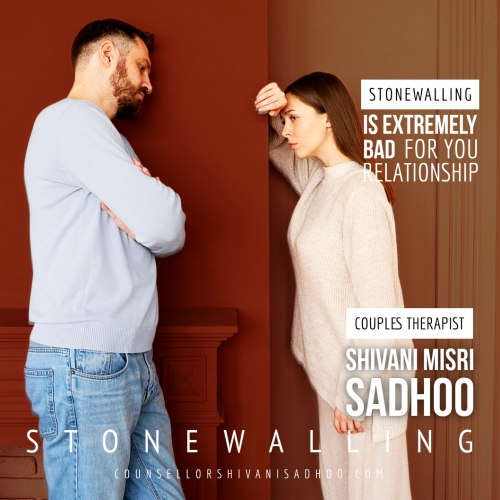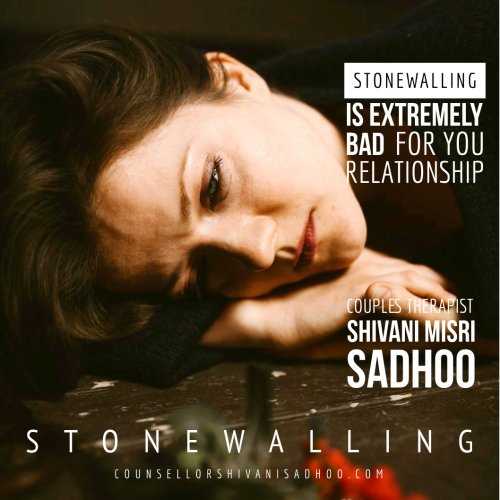Yes, a movie ends on a happy note — the hero and heroine walking into their “happily ever after.” But real life actually begins from there. When two people meet and fall in love, they make promises — some spoken, many unspoken.
As days turn into months and years, conflicts slip in naturally. Misunderstandings arise, expectations grow heavier, and the magic of the beginning can start to dim under the weight of everyday reality. But not all conflicts are bad. In fact, some are necessary. They peel away the illusions of perfection and invite both partners to grow. Yet when arguments begin to cross a line — when every disagreement feels like a battlefield — that’s when it’s time to pause.
How to de-escalate heated fights amongst couples?
Arguments shouldn’t spoil the bond; instead, learning to de-escalate them can strengthen it. And to help couples handle these stormy moments, says Shivani Misri Sadhoo, a leading relationship expert and one of the highly experienced marriage counsellors in Delhi, India.
Press the Pause Button
When an argument starts to intensify, it helps if one person presses pause right away. A relationship grows stronger when both people choose connection over winning, because it’s not about who’s right—it’s about how you treat each other while you work through things together.
Taking a short break lets emotions cool, prevents regretful words, and gives each person space to reflect on what they’re really feeling.
Research even shows that about twenty minutes is often enough to bring your heart rate down and regain a sense of calm. In moments like these, the healthiest thing you can do is step back and say, “Let’s stop here for a moment. We need to hear each other out.”
Reflect
Once you hit the pause button, the next step is to reflect on your own feelings, on what the situation is really asking of you, and on how things might look from your partner’s side. This small moment of self-check creates space for calm and clarity, making it easier to speak with empathy rather than react out of frustration.
It’s natural to feel convinced that we’re right and the other person is wrong, but pausing helps us soften that instinct and look at the situation with a bit more honesty. In that brief break, you can sort through what you actually need, what may have triggered you, and how to express yourself without blame.
Often, just taking those few intentional seconds is enough to shift the entire tone of the conversation and prevent it from spiraling.
Find out the Real Why
When couples argue, the real issue often slips beneath the surface, buried under reactions, tone, or the heat of the moment. That’s why it helps to pause and look for the true trigger—sometimes it’s something as small as feeling unheard, overwhelmed, or unappreciated, rather than whatever started the argument on the surface.
If you peel back the layers a bit, you might find that one person was already carrying stress from elsewhere, or that an old, unresolved concern got brushed up again without anyone realising it. Getting to that “why” isn’t about assigning blame; it’s about understanding the emotional undercurrent so both people can respond with empathy instead of frustration.
Listen to Your Partner
Sometimes the simplest advice is the hardest to follow — just listen. In the middle of a heated argument, couples often talk over each other, raising their voices without actually hearing a word being said. But listening is one of the most powerful tools for de-escalation.
When you slow down and genuinely pay attention, you’re not just absorbing words — you’re acknowledging your partner’s feelings, showing that their emotions matter, and creating space for understanding instead of defensiveness.
Real listening means trying to grasp what they’re really upset about, what they need, and why it matters to them. It’s a sign of respect, care, and willingness to fix the issue rather than fuel it further.
And often, once someone feels heard, the tension softens naturally; solutions appear more easily, and the conversation becomes less about winning and more about reconnecting. Listening doesn’t magically solve everything, but it opens the door to resolution — and that’s usually all a relationship needs to start moving forward again.
Choose Your Words
It’s surprising how quickly a few careless words can turn a small disagreement into something painful. In the heat of an argument—especially between couples—words can come out harsh, thoughtless, or completely misunderstood, and once they’re said, you can’t take them back.
That’s why choosing your words with intention matters so much, instead of slipping into blame, personal attacks, or sweeping statements like “you always” or “you never,” try grounding the conversation in your own feelings with gentle “I” statements.
Slow down, listen without interrupting, and make space for your partner to feel heard. Not every disagreement needs a winner; sometimes the real victory is understanding each other better. A little patience, clarity, and kindness can keep a difficult moment from becoming a damaging one.
In a nutshell, de-escalating arguments isn’t about winning—it is about caring for each other. Take a step back, listen, understand what’s really bothering each other, and communicate gently. Little pauses, honest reflection, and thoughtful words can turn tension into connection, helping couples grow closer instead of drifting apart.
Check out Popular Blog Posts on relationship tips on Couple fights
- Why Fighting Over Who’s Right Is the Wrong Approach in a Relationship? – One of the top couples therapists in Delhi and Gurgaon, Shivani Misri Sadhoo, explains why arguing over right vs. wrong harms relationships.
- How To Make Your Boyfriend Talk after a Fight? – How to make your boyfriend talk after a fight? Answers Shivani Misri Sadhoo, one of the leading marriage counsellors and one of the best relationship therapists in India.
- Is Your Relationship Worth Fighting For? Signs You Should Not Give Up Just Yet – Marriage counsellor and relationship expert Shivani Misri Sadhoo tells if your relationship is worth fighting for?
- Why Fighting with your Partner is Good for your Relationship – Shivani Misri Sadhoo at Saarthi Counselling Services is there to guide and help you if you are experiencing too much of a fight or constraints in your relationship.
- Do You Find It Difficult to Approach Your Partner After a Fight? – Marriage Counsellor Shivani Sadhoo Reveals How to Break the Silence Post a Fight with Your Partner

